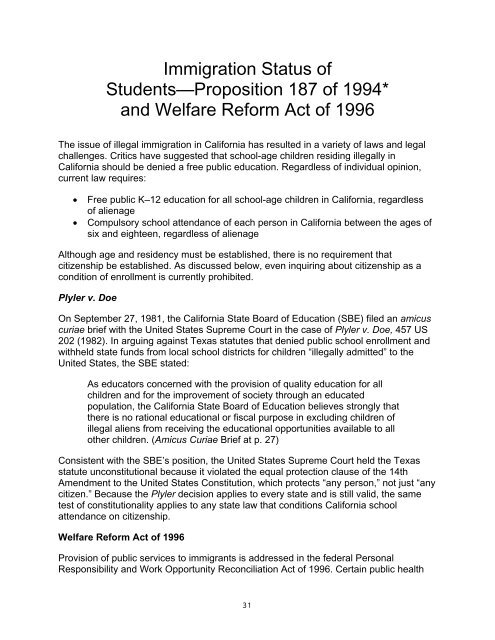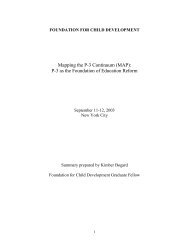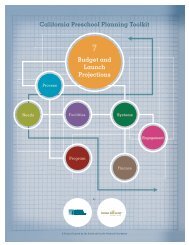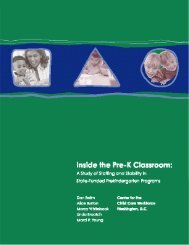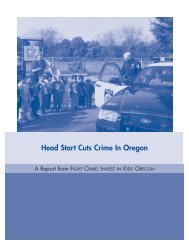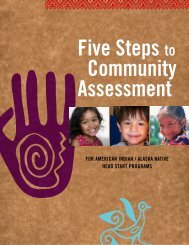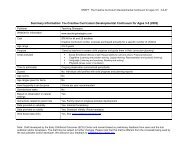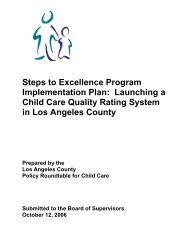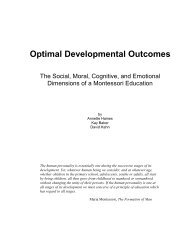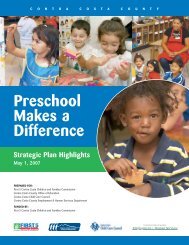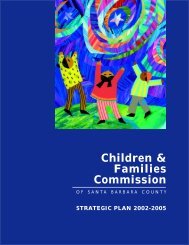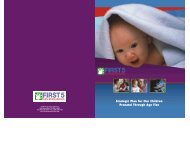Download this file - Plan4Preschool
Download this file - Plan4Preschool
Download this file - Plan4Preschool
You also want an ePaper? Increase the reach of your titles
YUMPU automatically turns print PDFs into web optimized ePapers that Google loves.
Immigration Status of<br />
Students—Proposition 187 of 1994*<br />
and Welfare Reform Act of 1996<br />
The issue of illegal immigration in California has resulted in a variety of laws and legal<br />
challenges. Critics have suggested that school-age children residing illegally in<br />
California should be denied a free public education. Regardless of individual opinion,<br />
current law requires:<br />
• Free public K–12 education for all school-age children in California, regardless<br />
of alienage<br />
• Compulsory school attendance of each person in California between the ages of<br />
six and eighteen, regardless of alienage<br />
Although age and residency must be established, there is no requirement that<br />
citizenship be established. As discussed below, even inquiring about citizenship as a<br />
condition of enrollment is currently prohibited.<br />
Plyler v. Doe<br />
On September 27, 1981, the California State Board of Education (SBE) <strong>file</strong>d an amicus<br />
curiae brief with the United States Supreme Court in the case of Plyler v. Doe, 457 US<br />
202 (1982). In arguing against Texas statutes that denied public school enrollment and<br />
withheld state funds from local school districts for children “illegally admitted” to the<br />
United States, the SBE stated:<br />
As educators concerned with the provision of quality education for all<br />
children and for the improvement of society through an educated<br />
population, the California State Board of Education believes strongly that<br />
there is no rational educational or fiscal purpose in excluding children of<br />
illegal aliens from receiving the educational opportunities available to all<br />
other children. (Amicus Curiae Brief at p. 27)<br />
Consistent with the SBE’s position, the United States Supreme Court held the Texas<br />
statute unconstitutional because it violated the equal protection clause of the 14th<br />
Amendment to the United States Constitution, which protects “any person,” not just “any<br />
citizen.” Because the Plyler decision applies to every state and is still valid, the same<br />
test of constitutionality applies to any state law that conditions California school<br />
attendance on citizenship.<br />
Welfare Reform Act of 1996<br />
Provision of public services to immigrants is addressed in the federal Personal<br />
Responsibility and Work Opportunity Reconciliation Act of 1996. Certain public health<br />
31


